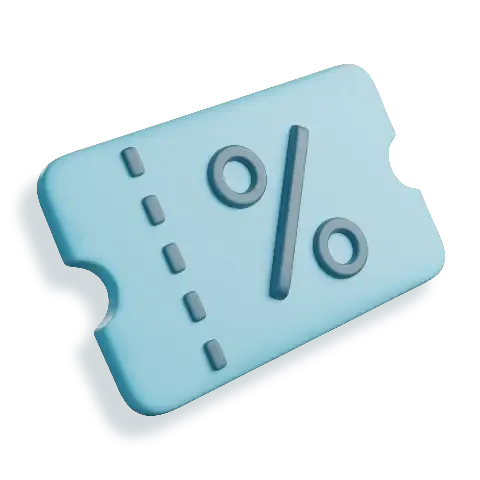
The Perils of Caffeine and The Fix
Caffeine is often hailed as a miracle substance for boosting energy and keeping us alert, and it’s no surprise that over 80% of people in the U.S. consume it daily, primarily through coffee, tea, and energy drinks. While many of us rely on caffeine to stay focused and fend off drowsiness, some find that caffeine can lead to unexpected issues. From feeling unusually tired to experiencing jitters, headaches, or even chest discomfort, caffeine’s effects can be surprisingly complex. Is there any science to these symptoms? Read to the end to find the solution.
Caffeine makes me tired
Strangely, many people actually feel tired after consuming caffeine. Is there any truth to this, and why does it happen? Firstly, caffeine works by blocking a chemical called adenosine, which promotes relaxation and sleepiness. However, once the caffeine wears off, adenosine receptors that were blocked begin to catch up, and the delayed release can make us feel suddenly exhausted.

Another reason is the crash that can follow caffeine consumption. After the temporary energy boost, we may experience a drop in blood sugar and energy, making us feel even more tired than we were before we consumed caffeine. This can be especially common with high doses or when caffeine is consumed on an empty stomach.
Lesson learnt: Smooth out your caffeine consumption to avoid crashes and tiredness.
Caffeine raises my blood pressure
This effect is more well known but just as scary. Caffeine does lead to a temporary rise in blood pressure among many of us. While it doesn’t necessarily cause chronic high blood pressure (hypertension), caffeine affects people differently. For some, particularly those sensitive to caffeine, it can increase systolic and diastolic blood pressure due to its stimulant properties.

Caffeine constricts blood vessels and stimulates the release of adrenaline, a hormone that increases blood pressure. For people who already have high blood pressure, caffeine can add extra strain on their cardiovascular system, making it worth monitoring caffeine intake if you fall into this group. Research suggests that regularly consuming caffeine may cause the body to adapt, but everyone’s tolerance level is different, so it’s a good idea to check your blood pressure after caffeine to see if there’s any impact.
Lesson learnt: You know your body best. Avoid caffeine if you experience risk factors like hypertension. Even if you're healthy, moderate caffeine consumption throughout the day.
Caffeine triggers my anxiety!
Yes, caffeine can indeed heighten anxiety, especially in people who are already prone to it. Caffeine stimulates the central nervous system, which can lead to an increased heart rate, rapid breathing, and heightened alertness—all of which can mimic the body’s stress response. For those susceptible to anxiety, this can create or worsen feelings of nervousness and restlessness.

In higher doses, caffeine can exacerbate symptoms of anxiety or panic attacks. Some individuals even experience “caffeine-induced anxiety disorder,” an actual medical condition. If you’re sensitive to caffeine, you may feel jittery or on edge after consuming even moderate amounts, so keeping your intake in check may help manage anxiety symptoms.
This doesn't mean you have to avoid caffeine entirely. Just as with any other food or supplement, use responsibly and listen to your body.
Lesson learnt: Avoid spikes and jitters by smoothening out your caffeine intake, reducing the likelihood of triggering anxiety symptoms.
Caffeine gives me headaches
In small doses, caffeine actually relieves headaches by constricting blood vessels, but don't go overboard. In higher doses or with regular use, caffeine can lead to 'rebound' headaches, otherwise known as withdrawal symptoms. Your body starts to require a level of caffeine and falling below the threshold triggers headaches and craving for that coffee or energy drink.

For the rare few, caffeine also triggers migraines. This is because it affects blood flow in the brain, and changes in blood flow can sometimes lead to headache pain. Consistency in caffeine intake is key here — drastic increases or decreases can prompt headaches. If you’re prone to headaches, it might be worth tracking your caffeine intake to see if there’s a correlation.
Lesson learnt: Avoid sudden surges of caffeine in your body by using alternative methods of consumption besides drinks.
Caffeine causes chest tightness and pain!
While caffeine itself doesn’t directly cause heart-related chest pain, it can lead to symptoms that mimic it, especially for those sensitive to it. As mentioned, caffeine increases heart rate, blood pressure, and can even cause palpitations. This can lead to a sensation of chest tightness, which can be mistaken for heart pain, particularly if you’re already anxious.
Chest pain related to caffeine is generally benign, but if you experience it often, it’s worth cutting back on caffeine or discussing it with your doctor. For those with underlying heart issues, excess caffeine can exacerbate symptoms, so moderation or a reduction in caffeine intake may be advised.
Is there a way to avoid these symptoms?
We all love caffeine for the energy boost and pick-me-up, but as with all good things, we should remember to use with moderation. Understand your own individual tolerance and listen to what your body is telling you. If in doubt, consult a physician.
Energy drinks and coffee frequently cause sudden spikes, crashes and jitters leading to the negative symptoms we discussed. Did you know there are other ways to get the benefits of caffeine, while mitigating the side effects?

STIM is the new dissolvable energy strip which dissolves on your inner cheek. It is the first energy strip in the world to use time release caffeine, which smoothens out your caffeine intake, avoiding those horrible crashes and jitters. This goes a long way in helping to avoid tiredness, raised blood pressure, headaches and chest tightness in energy drinks or coffee.
As a bonus, STIM starts working 4.8x faster, because the caffeine is absorbed directly in the mouth, unlike with drinks that must pass through your tummy first.
Experience Energy On Demand and say goodbye to the perils of caffeine.
Instant Energy. Convenient Energy. Tastes Great.
 Boost Now
Boost Now

